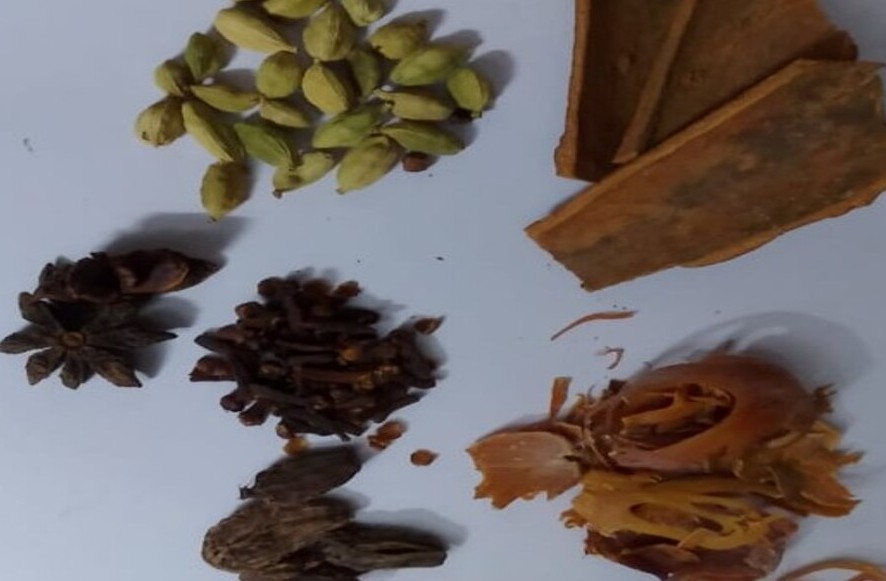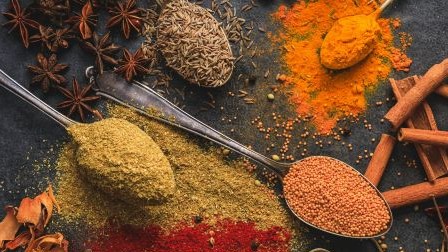Making Any Subject Interesting" with the "Masala" Method

Adding Your Own "Masala" to Make Any Subject Tasty and Delicious!
Ever found a school subject a bit like trying a new, strange-tasting food? You know it might be good for you, or even important, but it just doesn’t seem appealing... yet! Well, guess what? When it comes to learning to enjoy new things – whether it's different foods like Sushi, Salmon, Caviar, or even Idli and Sambar if they're new to you – there are usually a couple of cool ways to go about it.
Path One: The Slow & Steady Taste Test. This is where you get multiple exposures. You taste it often, a little bit at a time, and slowly, over a period, your taste buds adjust, and you might find yourself actually loving it! This works for subjects too.
Path Two: The "Add Masala" Super Shortcut! This is the other option, often a quicker and more exciting route. It's about adding your own "Masala" – your own special blend of interest, connection, and fun – to make that new food (or subject!) instantly more interesting and enjoyable. Think of it as the clever tweaking method, the smart "Indian Jugaad" way to make things click for you!

In a previous blog post, I talked about the "Sushi experience" for someone new to it. Let's take a quick peek at what that taught us, as it sets the stage for our "masala" magic.
A Quick Bite from the Sushi Story: What Did We Learn?
Remember how trying sushi for the first time can be a mix of new textures and subtle flavors? Here’s the takeaway:
- First Impressions Aren't Everything: Just because you don’t like something (a food or a subject) straight away, it doesn’t mean you’ll never like it, or that you’re not good at it.
- Open Minds & Active Trying Make a Difference: If you keep an open mind and keep trying in different ways (that’s active engagement!), you can genuinely start to like, and even love, something that seemed unappealing before. This is that "Path One" we talked about – repeated exposure.
- The Secret Sauce: The real trick, even with repeated exposure, is to find your own personal ways to connect with it. This means making the unfamiliar feel more familiar (almost like "adding a little masala" even in the slow method!) and enjoying those good feelings when you understand or achieve something.
So, just like someone trying sushi might eventually become a huge fan by exploring all its types and tastes, you can go from being unsure about a subject like Maths to actually enjoying it. Active involvement and finding your personal connection to its logic and challenges are key.
But what if we want to speed things up and make it even more fun from the get-go? That’s where actively adding our own "Masala" comes in! First, let's understand that our "learning taste buds" are just like our food taste buds – they can learn and adapt!
Food for Thought: Cultivating Your Taste for Learning (and Why "Masala" Helps!)
Let's think about the amazing variety of food in the world – it’s a huge, exciting adventure, just like all the different subjects you study! Have you ever noticed how your taste in food can change as you grow? Let’s explore this a bit more.
- What about fancy Caviar? Those tiny, salty fish eggs might seem really strange at first bite for many.
- Or think about Tofu, a staple in many Asian meals. On its own, tofu can taste quite bland and often needs other flavors added to make it truly yummy. (Hint: Tofu loves masala!)
- Then there’s Korean Kimchi – its bold, spicy, and fermented taste can be a real surprise if you’re not used to it!
- Even enjoying Raw Salmon, popular in many European countries, can be a new experience if you haven’t tried it before.
Now, let’s flip the coin. Imagine someone who has never tried Indian food. If you offered them a warm plate of spicy Dal (lentils) and Rice, or the comforting South Indian duo of Idli (steamed rice cakes) and Sambar (lentil stew), the wonderful smells and unique textures might feel a bit overwhelming at first. But, with a few tries (Path One!), or perhaps if the dish is introduced with familiar elements (a touch of Path Two!), many people from all over the world fall in love with these rich and exciting flavors.
The point is, developing a taste can sometimes take time. But what if we could make that process more engaging and delicious from the start?
How to Make Any "Difficult" Subject Interesting or Delicious: Add Your Own "Masala"!
This is where we take control! Now let’s talk about actively adding some "masala" to Maths, Science, History, or any subject that you initially dislike, to make it much more "palatable" – tastier and more enjoyable for your mind!
To make subjects more interesting and fun, we need to connect them to things you already like or understand – just like adding your favorite spices to a dish to make it perfect for your taste!
Here’s your recipe for adding your own "masala" to your studies:
- Find the Real "Flavor" of the Subject: Don't just look at the surface (like memorizing facts or formulas without understanding). Dig deeper! Try to understand the why behind things. Look for the underlying logic, the patterns, the main ideas, or the cool stories. That’s where the true, exciting "flavor" of any subject lies!
- Sprinkle in "Familiar Spices": Connect what you’re learning to your world – your life, your hobbies, your dreams for the future. If you love video games, how do Maths or Physics make those games work? If you dream of being an artist, how does understanding history or different cultures inspire art? Seeing these connections makes learning super relevant and much tastier!
- Create "Appetizing Combinations": Make the learning process itself easier and more fun to "digest"!
- Use colorful diagrams, mind maps, or flashcards.
- Watch interesting videos or documentaries related to the topic.
- Break down big, complicated problems into smaller, bite-sized pieces. This makes the subject feel less scary and more like a well-arranged, inviting meal you can actually enjoy!
- Taste the "Satisfaction" of Success: Remember that awesome feeling when you finally solve a tough problem, understand a tricky idea, or complete a challenging project? That's the incredible "fun in solving problems" – it’s like the delicious taste of your favorite treat! This feeling of achievement is a super positive reward that makes you want to learn even more.
The Salmon Story Revisited: "Cooking" Your Way to Understanding (The Masala Shortcut!)
Recall my experience of eating raw salmon in Belgium, where it's considered a delicacy. After my initial doubts, I did eventually become a fan through repeated exposure and trying it in various combinations – that was Path One, the slower acquired taste. But, let's be honest, if you’re not used to it, the idea of eating raw salmon the first few times might seem unappetizing, and it can take a while to appreciate it.
Now, here's the "Masala" shortcut: Imagine that same salmon completely transformed into a delicious, spicy Indian fish curry, or pan-fried with fragrant masalas until it’s perfectly cooked and bursting with flavor. Suddenly, it becomes incredibly tasty and appealing, right?
You might not need to wait for multiple experiences to enjoy it; the "masala" makes it delicious much faster!
Sometimes, a school subject can feel like that "raw" salmon – the pure facts, equations, or abstract ideas might seem hard to swallow or a bit boring at first. But, if you "cook" that subject by adding your "masala" in a way that suits your learning style, you can make it much more enjoyable and easier to understand, much more quickly!
"Cooking" your subject with your own "masala" could mean:
- Visualizing it: Drawing pictures, diagrams, or creating mental movies to understand concepts.
- Breaking it down: Turning big topics into smaller, more manageable and less intimidating chunks.
- Talking about it: Explaining what you’ve learned to friends, family, or even your pet! Teaching others is a great way to "cook" the information in your own mind.
- Connecting it: Actively linking new ideas to things you already know, find interesting, or can use in your daily life.
Just like a great chef knows how to bring out the best flavors in different ingredients, you can become a "learning chef"! You can learn to find the "ingredients" (the key ideas in any subject) and the "cooking methods" (your best ways of learning) that make each subject engaging and understandable for you.
It’s all about experimenting, finding your own special "masala" for learning, and realizing that a love for learning, just like a love for different types of food, is often a taste that you can actively cultivate, develop, grow, and enjoy more and more – especially when you know how to spice things up!
The big idea here is truly transformative for learning any new subject at school. You wouldn’t expect to instantly love every single new food you try, right? In the same way, you might not feel an instant connection with every subject. Maybe the logical steps in Mathematics feel like a strange new flavor, or the many details in History seem like a very complicated dish to finish.
However, just like you can learn to love sushi, caviar, tofu, kimchi, or appreciate all the amazing tastes in dal and rice – either through repeated tasting or by adding some delicious enhancements – your interest and understanding in different subjects can grow and blossom! While patient effort (Path One) always helps, actively adding your "masala" (Path Two) can make the journey more delicious from the start.
You still need to "taste" the subject by engaging with it, exploring its different parts, and giving your mind a chance to connect. But make it an exciting taste test!
Think of it like adding your favorite seasonings to a plain dish. A simple piece of tofu can become super tasty with a bit of soy sauce, ginger, and spices. In the same way, you can find and use your own "flavor enhancers" for your studies:
- Try different "masala" learning techniques: Draw, make creative notes, use rhymes or songs to remember things, or teach someone else.
- Find the real-world "masala": Discover how the subject is used in cool jobs, everyday life, or to solve big world problems. This makes it super relevant!
- Get "masala" ideas from others: Chat with classmates who enjoy the subject – they might share some brilliant learning "recipes"!
- Use "masala-rich" resources: Explore fun educational videos, engaging documentaries, interactive online games, or cool apps related to what you're learning.
So, keep exploring, keep "tasting," and most importantly, don't be afraid to add your own unique "masala" to every learning experience. You'll be amazed at what you can learn to love and how delicious the journey of knowledge can be!
